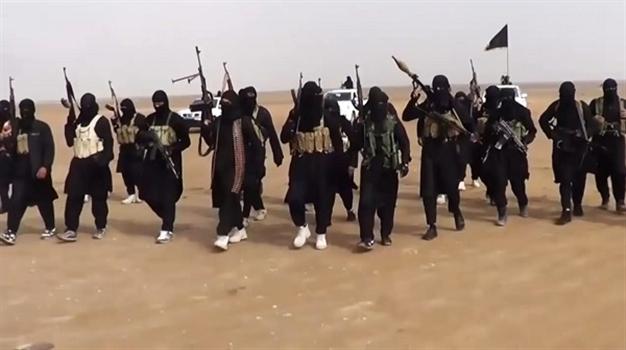ISIL appears to be starting to fray from within, as dissent, defections and setbacks on the battlefield sap the group’s strength and erode its aura of invincibility among those living under its despotic rule
 ISIL appears to be starting to fray from within, as dissent, defections and setbacks on the battlefield sap the terrorist group’s strength and erode its aura of invincibility among those living under its despotic rule, according to Washington Post.
ISIL appears to be starting to fray from within, as dissent, defections and setbacks on the battlefield sap the terrorist group’s strength and erode its aura of invincibility among those living under its despotic rule, according to Washington Post.
Reports of rising tensions between foreign and local fighters, aggressive and increasingly unsuccessful attempts to recruit local citizens for the front lines, and a growing incidence of guerrilla attacks against Islamic State targets suggest the militants are struggling to sustain their carefully cultivated image as a fearsome fighting force, the paper added.
The biggest threat to ISIL’s capacity to endure may come from within, as its grandiose promises collide with realities on the ground, Washington Post quoted Lina Khatib, director of the Carnegie Middle East Center in Beirut as saying.
Most striking are the growing signs of friction between the foreigners lured by its state-building experiment and local recruits, who have grown resentful of the preferential treatment meted out to the expatriates, including higher salaries and better living conditions, the American newspaper noted.
"Foreign fighters get to live in the cities, where coalition airstrikes are relatively rare because of the risk of civilian casualties, while Syrian fighters are required to serve in rural outposts more vulnerable to attacks, said an activist who opposes ISIL and lives in the town of Abu Kamal on Syria’s border with Iraq."
"There have been signs, too, that some foreign 'jihadists' are growing disillusioned, with activists in the Syrian provinces of Deir al-Zour and Raqqa describing several instances in which foreigners have sought local help to escape across the border to Turkey. The bodies of between 30 and 40 men, many of whom appeared to be Asian, were found last month in the Raqqa town of Tabqa. They are thought to be the remains of a group of jihadist fighters who tried to flee but were caught, according to the activist group Raqqa is being slaughtered silently, which monitors ISIL activities."
Washington Post asserted that territorial losses in northern Syria and elsewhere in Iraq are contributing to the sense that the terrorist group which stunned the world with its triumphant sweep through Iraq and Syria last summer is now not only on the defensive but also struggling to find a coherent strategy to confront the multiple forces ranged against it.
"ISIL is battling major offensives waged on at least three fronts — by Kurds in northern Syria, Kurds in northern Iraq and the combined force of Iraqi army and the Popular Mobilization fighters advancing on the central Iraqi city of Tikrit."
ISIL’s losses in terms of land and blood have been fairly substantial, including the loss of hundreds of villages around the Kurdish town of Kobane in Syria, near the northern Iraqi town of Sinjar and in the eastern Iraqi province of Diyala, the paper mentioned.
"The battles appear to have taken a high toll on the terrorist group’s strength, estimated at about 20,000 foreigners alongside an unknown number of Iraqis and Syrians. The Pentagon claimed last week that coalition airstrikes have killed 8,500 fighters, though that figure can’t be confirmed."
Washington Post mentioned that Syrians say the bloodshed is deterring the recruitment of local citizens who were clamoring a few months ago for the opportunity to earn salaries by joining the only new source of employment available.